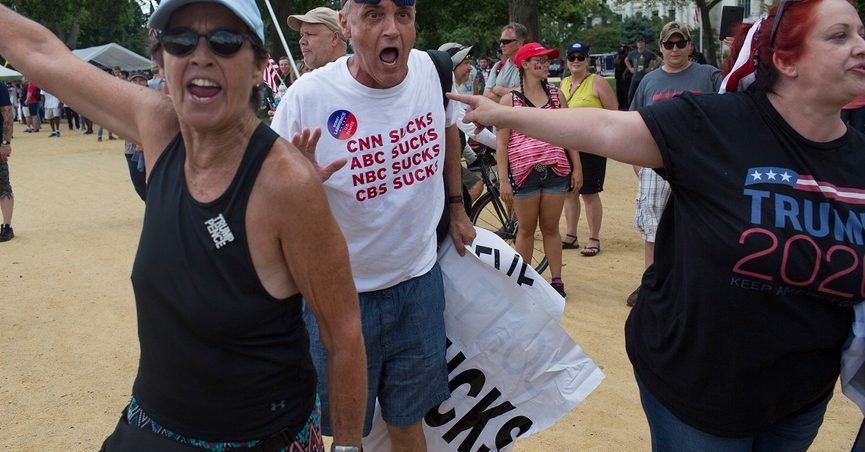只要我们从娱乐价值和媒体对共和党和民主党的偏见角度来看待治理,我们的知情将继续比我们需要的少。

【原文】
This article is republished here with permission from The Conversation. This content is shared here because the topic may interest Snopes readers; it does not, however, represent the work of Snopes fact-checkers or editors.
Charges of media bias – that “the media” are trying to brainwash Americans by feeding the public only one side of every issue – have become as common as the hope that the presidential race will end safely … and soon.
As a political scientist who has examined media coverage of the Trump presidency and campaigns, I can say that this is what social science research tells us about media bias.
The problem is that a focus on such stories crowds out what we need to know to protect our democracy, such as: How do the workings of American institutions benefit some groups and disadvantage others? In what ways do our major systems – education, health care, national defense and others – function effectively or less effectively?
These analyses are vital to us as citizens – if we fail to protect our democracy, our lives will be changed forever – but they aren’t always fun to read. So they get covered much less than celebrity scandals or murder cases – which, while compelling, don’t really affect our ability to sustain a democratic system.
Writer Dave Barry demonstrated this media bias in favor of dramatic stories in a 1998 column.
He wrote, “Let’s consider two headlines. FIRST HEADLINE: ‘Federal Reserve Board Ponders Reversal of Postponement of Deferral of Policy Reconsideration.’ SECOND HEADLINE: ‘Federal Reserve Board Caught in Motel with Underage Sheep.’ Be honest, now. Which of these two stories would you read?”
By focusing on the daily equivalent of the underage sheep, media can direct our attention away from the important systems that affect our lives. That isn’t the media’s fault; we are the audience whose attention media outlets want to attract.
But as long as we think of governance in terms of its entertainment value and media bias in terms of Republicans and Democrats, we’ll continue to be less informed than we need to be. That’s the real media bias.![]()
Marjorie Hershey, Professor Emeritus of Political Science, Indiana University
This article is republished from The Conversation under a Creative Commons license. Read the original article.
Help Supercharge Snopes For 2020
We have big plans. We need your help.